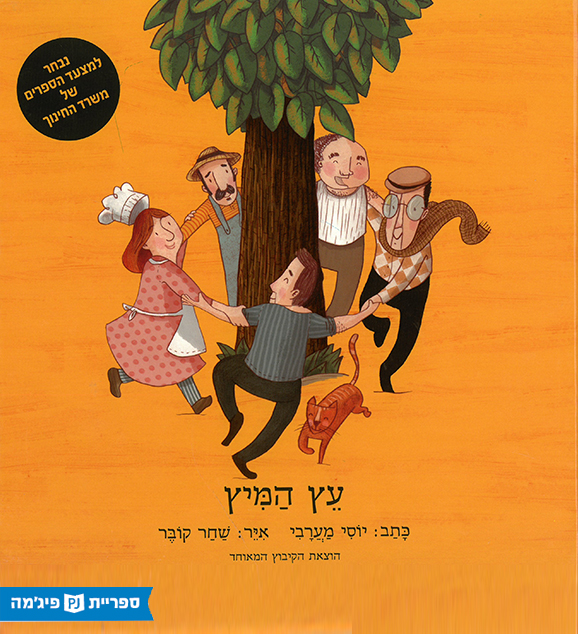
In a village grows a special tree with leaves that make a wonderful juice. Every day, each villagers plucks just one of its leaves. But what happens when everyone secretly picks a few more? A clever parable about mutual responsibility.

In a village grows a special tree with leaves that make a wonderful juice. Every day, each villagers plucks just one of its leaves. But what happens when everyone secretly picks a few more? A clever parable about mutual responsibility.
The Juice Tree is about a tree with wondrous leaves, and some villagers who are tempted to pick too many of them. Is it a true story? Or just a folk tale? Can wondrous trees only grow in storybooks?
Read MoreDear Parents,
The Juice Tree is about a tree with wondrous leaves, and some villagers who are tempted to pick too many of them. Is it a true story? Or just a folk tale? Can wondrous trees only grow in storybooks? Is it only fictitious characters who want to take just a little bit more for themselves, or "bend" the rules in their benefit? In The Juice Tree, the villagers learn that they must take care of their environment, and understand that their actions impact others.
Do are actions bear any other fruit? A Talmudic tale describes present deeds affecting the future: Honi HaMeagel came across an old man planting a carob tree. The man would not enjoy the fruit of the tree, as it will only bear them in seventy years' time. Honi asked him why, then, he was bothering to plant the tree, and the elderly man replied:
Just as my ancestors planted for me, so I plant for my offspring [Talmud, Taanit, 23a]
The tale about the Juice Tree, and that of the old man planting the carob tree, address our responsibility for the world in which we are living, the friends living alongside us, and those who will come after us. How can we ensure that they, too, will be able to drink juice or eat carobs, enjoy the goodness of this earth, and, of course – take care of those who come after them too?